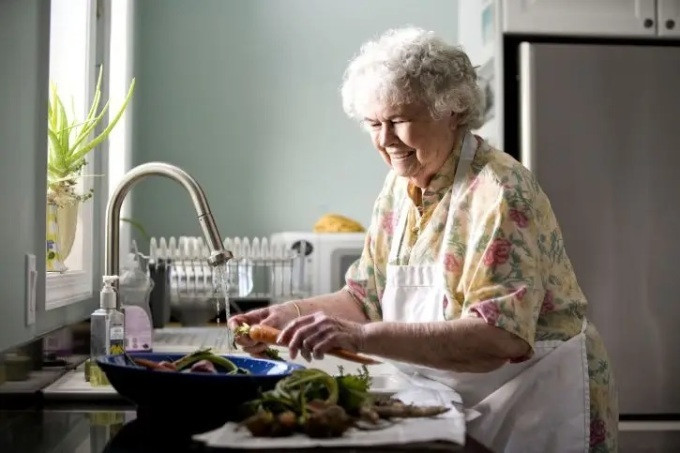Everyday activities such as housework and gardening have similar benefits to exercise, helping to reduce the risk of disease and increase energy and vitality.
Researcher Dan Buettner of the National Geographic channel (USA) has spent many years researching the secrets of the Blue Zones in Italy, Greece, Japan and Costa Rica - where people live the longest and healthiest lives compared to the world.
He found that people in Blue Zones have very low rates of diabetes, heart disease, and other chronic diseases, even though they rarely exercise. But their lives are often filled with natural activities such as weeding, watering plants, and doing housework.

Illustration
Here are the secrets to changing habits to live longer that they apply.
Limit sitting on the sofa, spend time exercising
Okinawa, Japan is a prime example of a Blue Zone, where people are more likely to live to be over 100 years old. A unique feature of Okinawan daily life is that homes have relatively little furniture. People often sit on mats on the floor, moving around and using their muscles more in daily activities.
“We see 103-year-olds doing 30 squats a day, which is like doing 20 squats. They’re strengthening their lower body core. They’re improving their balance,” Buettner says.
Okinawans do this without trying. But if your job doesn't allow for physical activity, you can do similar exercises. Take regular breaks, doing simple bodyweight exercises like squats, push-ups, or planks.
Keep your house clean
In the Blue Zone of Nicoya, Costa Rica, people get a better workout by doing household chores with their hands, Buettner says. Activities around keeping the house clean, preparing food, and mindless movements at the end of the day mimic physical activity.
Movement as part of your daily routine is called non-exercise activity thermogenesis (NEAT). It takes longer than exercise.
Realizing the power of NEAT can save time by doing household chores while providing health benefits like exercise.
Garden
Another way to exercise is gardening. According to archives, most Okinawans have a garden. Activities such as weeding, watering, etc. help increase mobility, strength, and endurance without putting too much stress on the body.
“Spending an hour or two a day gardening is a gentle, low-intensity physical activity that has health benefits,” says Buettner.
According to VnExpress